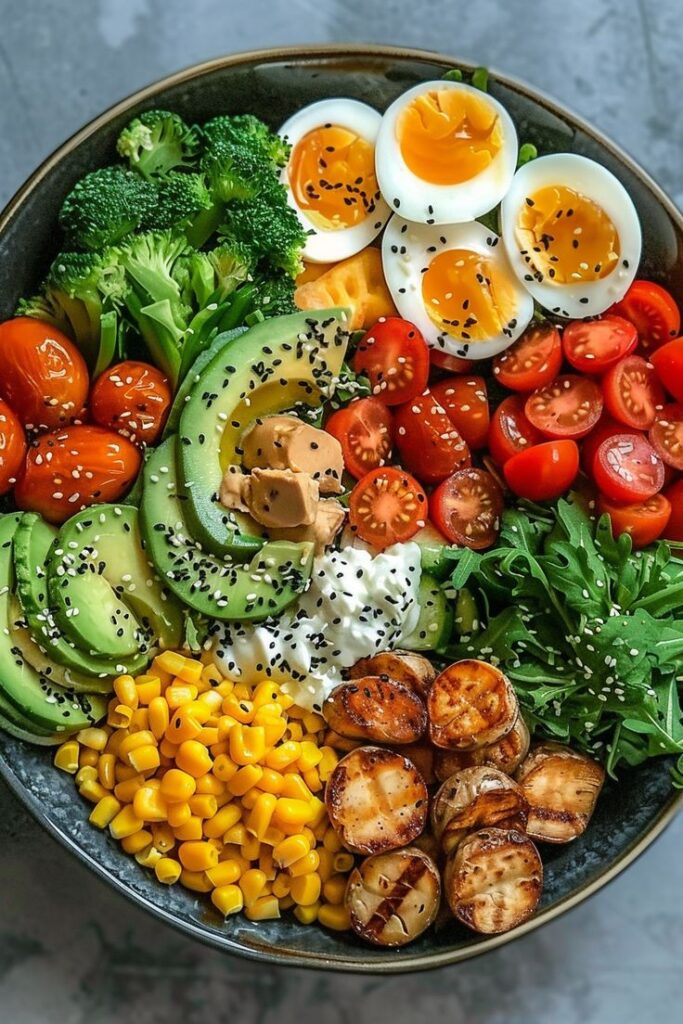The Art of Nourishment: A Holistic Guide to Healthy Eating

Healthy eating isn’t about rigid rules, extreme diets, or depriving yourself of the foods you love. It’s about embracing balance, nourishing your body, and making mindful choices that enhance your well-being. A well-rounded diet fuels your body with essential nutrients, boosts energy, sharpens mental clarity, and uplifts your mood.
Decoding Healthy Eating: It’s Simpler Than You Think
With so much conflicting nutritional advice, it’s easy to feel overwhelmed. However, the foundation of a healthy diet is simple—focus on whole, minimally processed foods, eat a variety of nutrients, and maintain balance in every meal. A mindful approach to nutrition can transform how you look, feel, and function daily.
Essential Nutrients for Optimal Health
A nutritious diet includes a harmonious blend of protein, healthy fats, complex carbohydrates, fiber, vitamins, and minerals. Understanding their role in your body can help you make informed dietary choices.
Protein: The Building Block of Life
Protein is essential for muscle repair, cognitive function, and overall vitality. While animal-based proteins are common sources, plant-based options like legumes, tofu, quinoa, and nuts offer excellent alternatives. Striking a balance between different protein sources ensures optimal nutrition.
Healthy Fats: Fuel for Brain & Heart
Not all fats are created equal. Healthy unsaturated fats—found in avocados, nuts, seeds, and olive oil—support brain function, heart health, and overall well-being. Omega-3 fatty acids, particularly from fatty fish and flaxseeds, are crucial for emotional stability and cognitive performance.
Complex Carbohydrates: Sustained Energy & Stability
Carbohydrates are your body’s primary fuel source. However, refined carbs like sugary snacks and white bread can cause energy crashes. Instead, opt for whole grains, fruits, vegetables, and legumes to maintain steady energy levels and support gut health.
Fiber: The Unsung Hero of Digestion
A fiber-rich diet aids digestion, regulates blood sugar, and supports weight management. Whole grains, fruits, vegetables, nuts, and legumes contribute to a healthy gut and overall wellness.
Calcium & Bone Health
Calcium is vital for strong bones, nerve function, and muscle health. Dairy products, leafy greens, almonds, and fortified plant-based milks provide excellent sources. Pairing calcium with vitamin D and magnesium enhances its absorption and effectiveness.
Transforming Your Eating Habits: Practical Steps
Switching to a healthier diet doesn’t require drastic measures. Small, consistent changes can lead to sustainable success.
Cook More at Home: Preparing meals at home gives you control over ingredients and portion sizes. Experiment with fresh, whole foods to create flavorful, nutrient-dense dishes.
Practice Portion Control: Overeating—even healthy foods—can hinder your wellness journey. Use visual cues like a deck of cards for protein portions and a lightbulb-sized serving for carbs to manage intake effectively.
Stay Hydrated: Water is essential for digestion, detoxification, and energy levels. Sometimes, thirst is mistaken for hunger, leading to unnecessary snacking. Drink plenty of water throughout the day to stay refreshed.
Read Labels: Many packaged foods contain hidden sugars, unhealthy fats, and artificial additives. Understanding ingredient lists helps you make smarter choices.
Mindful Eating: Pay attention to how different foods make you feel. Slowing down, savoring each bite, and eating without distractions can enhance digestion and prevent overeating.
Moderation, Not Deprivation: Enjoying your favorite foods in moderation helps maintain a healthy relationship with food. Instead of eliminating indulgences, focus on balance and mindful consumption.
Enhancing Your Diet with Fruits & Vegetables
Fruits and vegetables are nutritional powerhouses packed with vitamins, antioxidants, and fiber. To increase your intake:
Add berries to your morning oatmeal or yogurt
Swap refined grains for colorful salads
Snack on fresh veggies with hummus or nut butter
Experiment with roasted, grilled, or stir-fried vegetables for enhanced flavors
Final Thoughts: A Lifestyle, Not a Diet
Healthy eating isn’t about short-term fixes—it’s a lifelong commitment to nourishing your body and mind. By making gradual, conscious choices, you can enjoy a vibrant, energized, and fulfilling life.


